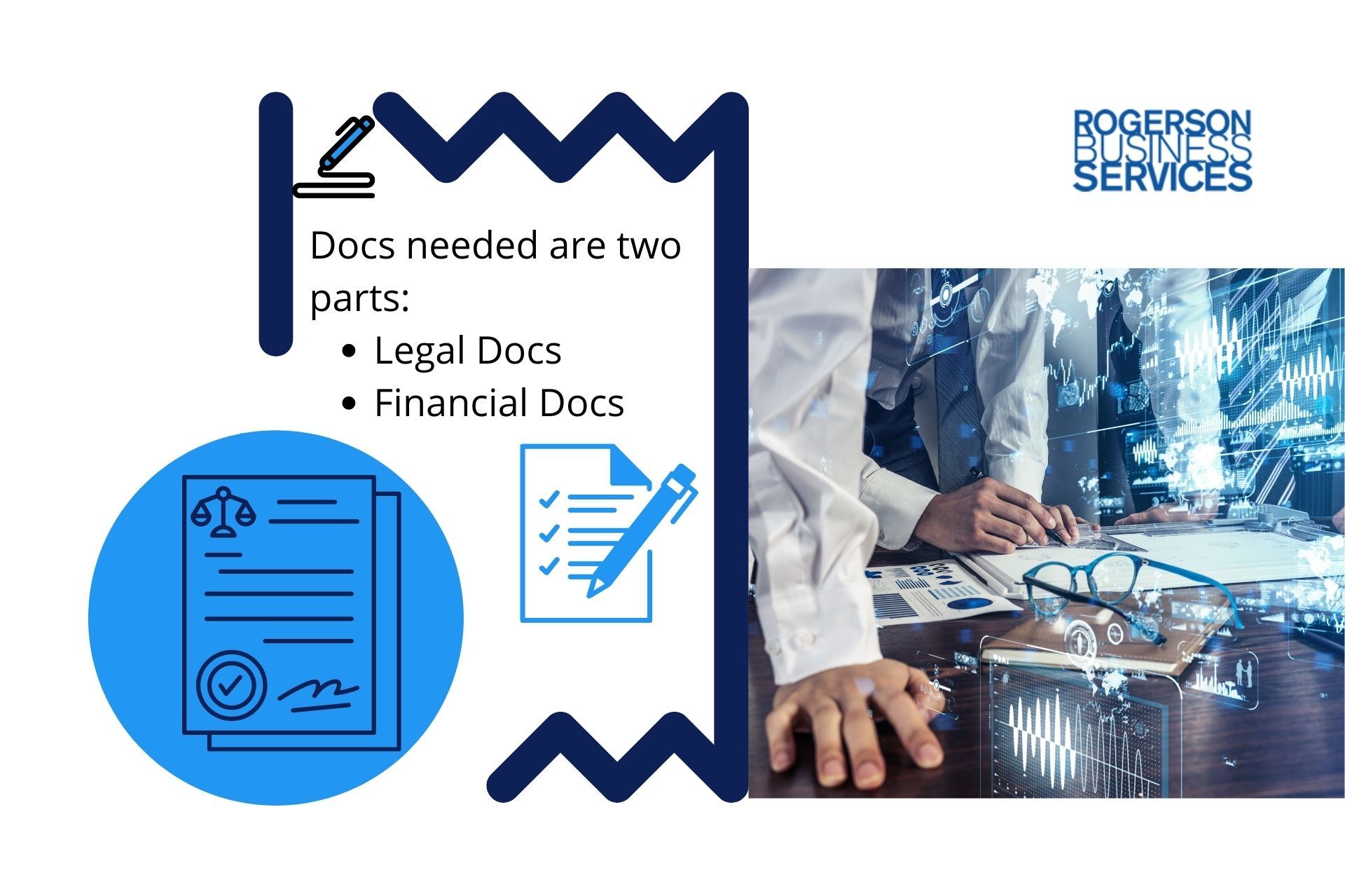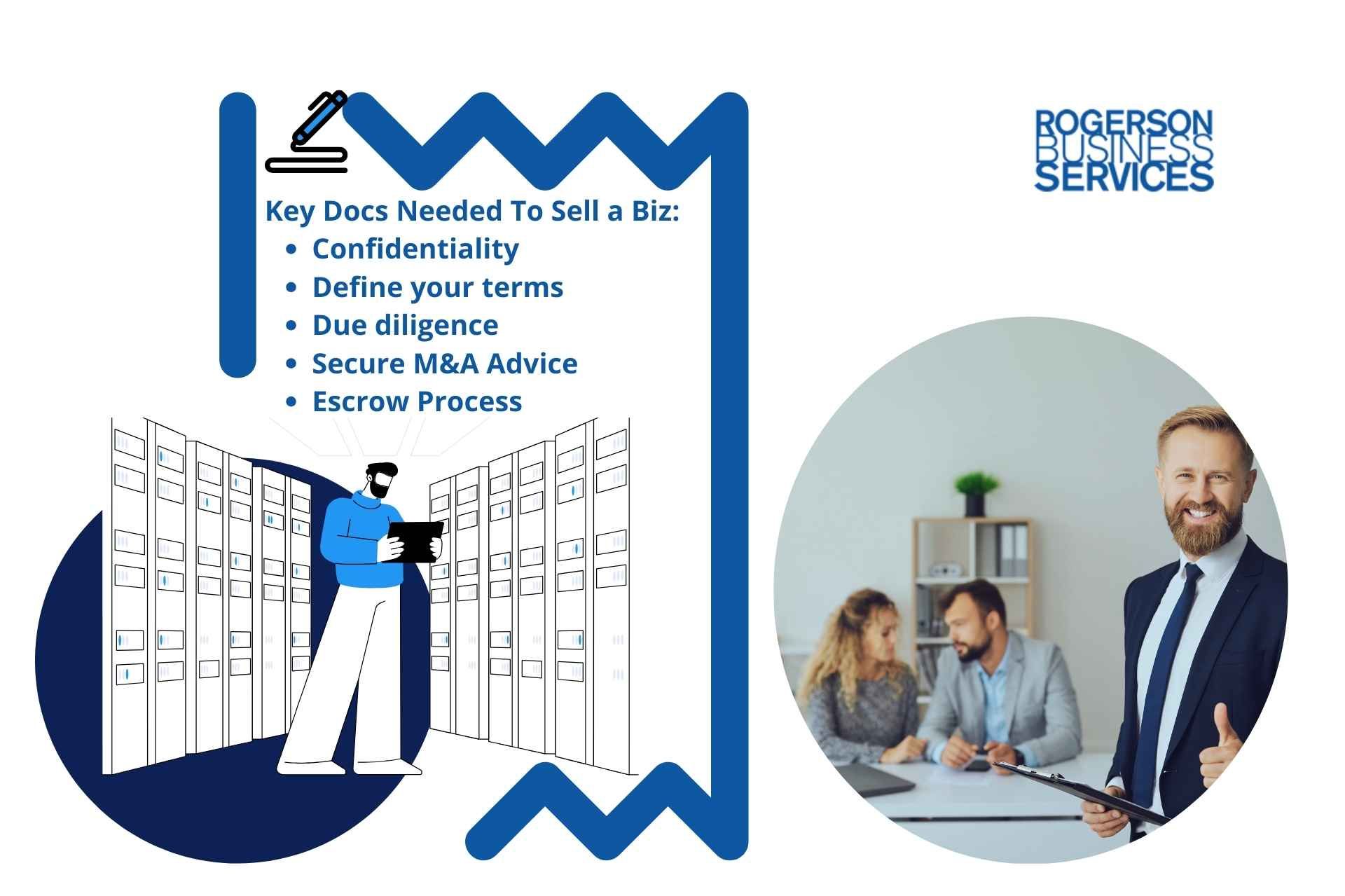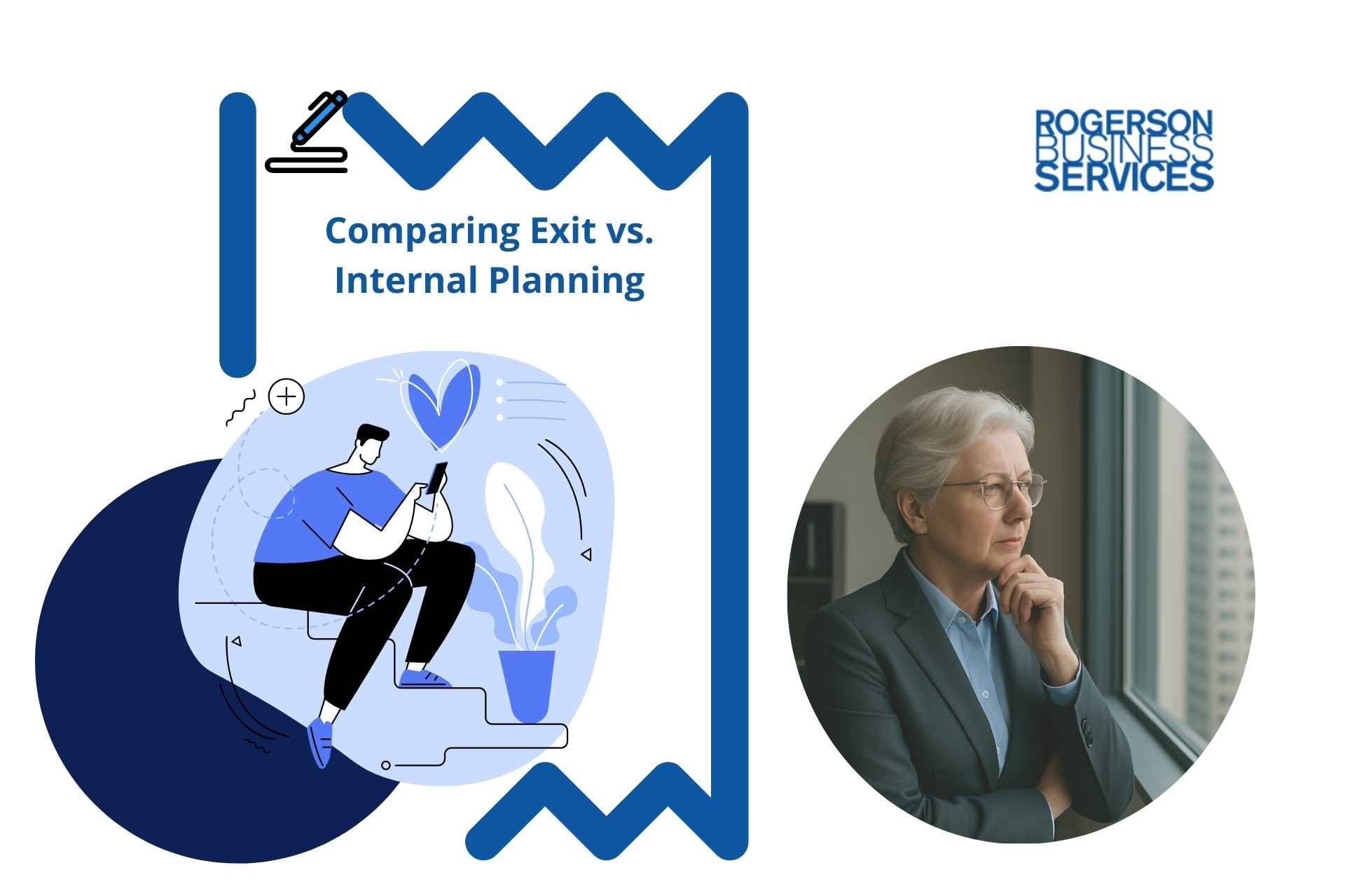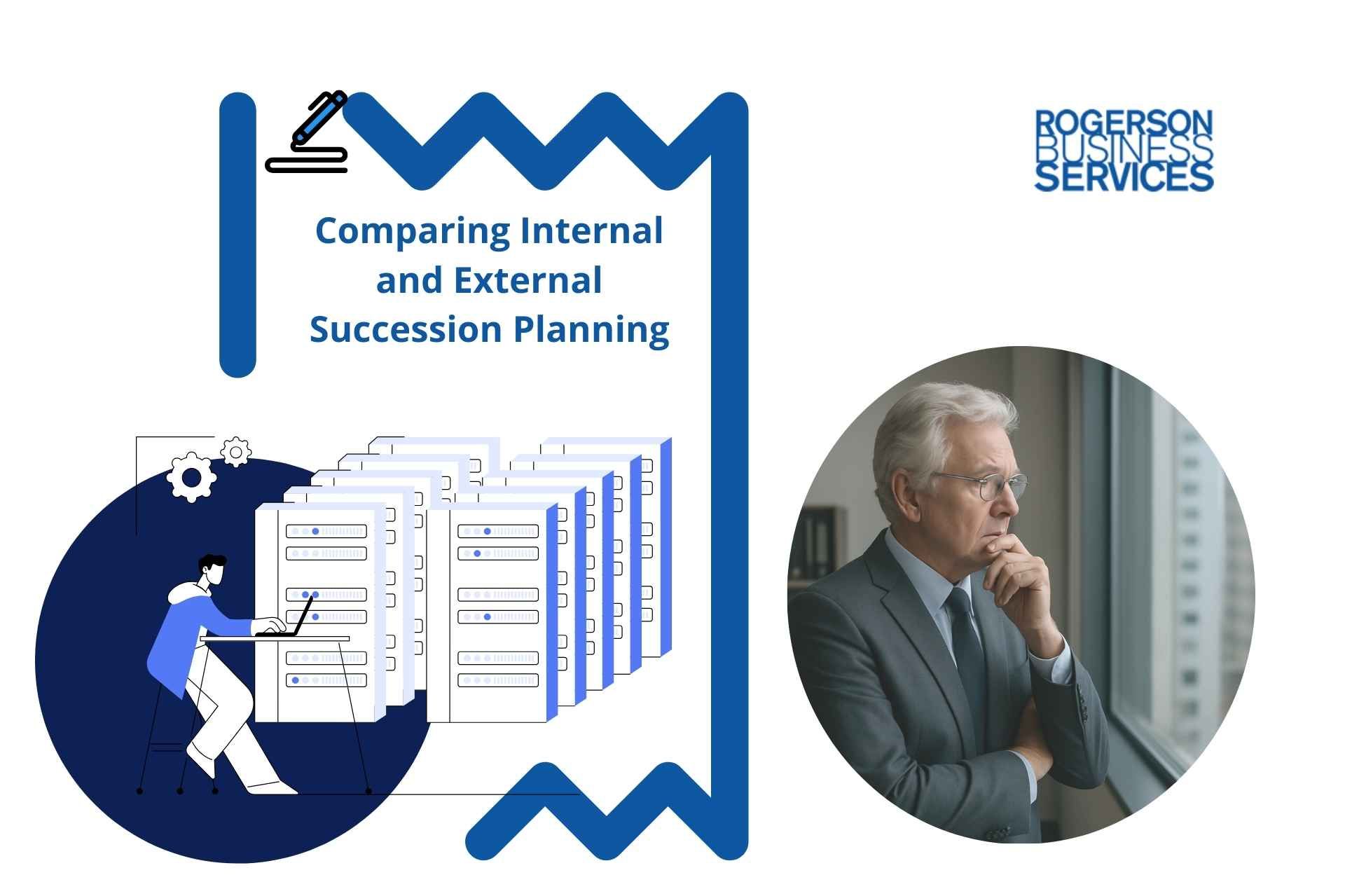Business Sale Documents | Prepare to Sell Your Business
Business Sale Documents
Business sale documents are two parts, financials and legal. Prepare to sell your business with the right docs.
Start exit preparation with an experienced and knowledgeable M&A Deal Team.

If you're a business owner in California and looking to sell your lower middle market business, get your business sale documents ready.
Here's a comprehensive guide to help you prepare your business for sale and get the best sales price.
Documents Required to Sell a Business
One of the main concerns one will have when selling a business is to have the necessary documents to sell a business. The documents needed to sell a business are:
- Legal documents
- Financial documents
It's worth mentioning that you might not need all the business sale documents detailed herein. However, preparing yourself and understanding why these documents are essential is vital.
Five legal documents are required to sell your business. Since local laws vary, file each legal document as per the state requirements where the company is on sale.
Focusing on California, here are some of the legal documents you might require when selling a lower middle market company include the following:
- Non-disclosure confidentiality agreement
- Offer-to-purchase agreement
- Personal financial statement
- Updated financial statements for the past 2-3 years
- Financial ratios and trends
- An updated inventory list with detailed values
- Note of seller financing
- Accounts payable and accounts receivables reports
Letter of Intent
When preparing a company for sale, a letter of intent (LOI) is one of the primary documents you should have. Typically, this document comes after the buyer and seller have had significant discussions about the business. The letter of intent comes after the parties involved in the contract have agreed on the basic terms of the agreement.
This legal document details the conditions, due diligence terms, transaction terms, deposit amount, and other crucial contract terms. Once parties sign the letter of intent, the buyer will proceed to complete their due diligence. And if everything runs smoothly, the terms of the letter will turn into the final terms of the sale agreement.
Buyer's Due Diligence
The buyer's due diligence is in the letter of intent. This document details that the buyer will do their individual research to determine all aspects of the business on sale. The buyer should verify facts, such as customer records, financial records, profit and loss statements, sales reports, and expense reports. The buyer's due diligence helps them confirm the business details and whether they want to proceed and buy the business.
The Purchase Agreement
After the parties sign the letter of intent and the buyer perform their due diligence, the purchase agreement will bind the buyer to the selling terms and conditions.
Method of Payment
The method of payment is required to move forward. Here, the buyer indicates whether they will buy the business using cash payments or will finance the deal. In terms of financing, the terms of payment are determined and mentioned within the contract to minimize the buyer's risk of defaulting on the loan.
Transfer of Ownership
If everything goes according to plan and parties agree on the sale, the seller signs a transfer of ownership. Legally, by signing this document, the seller consents that they have transferred the business to the new owner(s).
Preparing a Business for Sale Checklist
Selling a business in California can be a lengthy and exhaustive process. However, you're one step closer to closing the deal when armed with all the necessary forms for selling a business. The preparation process also entails having a checklist for selling a business.
This means knowing whether you're financially ready to sell the business, whether it's the right time to sell, and familiarizing yourself with all the crucial details of the sale. Here are five essential steps to help you get started with the financial preparation process.
Get Your Business Valued
One of the main things to mull over when selling a business is its value. You might have a rough estimate of the worth of your business, but it's essential to get it valued professionally. Expert valuation will ensure you know the real worth of your business. From this valuation, you can determine the selling price and how much you can negotiate with potential buyers.
Develop a Buyer Strategy
Working with experienced business brokers can help you become financially ready to sell your business. Middle market business brokers with extensive market knowledge can simplify the selling process. They can help you to create a list of potential buyers. These people have connections since they understand the market.
There are many lower middle market business brokers you can turn to, but it's essential to check their business broker documents. Doing this ensures you work with experienced brokers with a proven track record. Get recommendations for reputable business brokerage services you can trust.
Create a Tax Plan
The checklist for selling a business should also feature a tax plan you've developed with the assistance of a tax advisor. It's worth noting that selling your business will lead to a change in financial status. In turn, this has a direct impact on your taxes. As a result, preparing yourself financially to sell your business demands that you work with a reputable tax advisor to develop a tax strategy to help you cope with your post-sale financial situation.
For instance, if selling your business will lead to long-term gains, you must pay about 23.8% higher federal tax rates. Plus, the local state income taxes for the profit earned after the sale might apply. If the worst happens and you die, your heirs should expect to incur federal taxes of 40% or more.
Remove Non-business Items From Your Financials
Another integral aspect of getting your financials in check is to remove all non-business items from your financial profile. For instance, insurance for your extended non-working family and their salaries from your operations shouldn't be part of your financials.
These non-business items aren't associated with the business and shouldn't be part of the financial records buyers will review. Remove discretionary expenses and any other expense accounts from your financials.
Review Your Financial Statements
The financial statements for selling a business are significant, and buyers will want to review these statements before buying the property. You want to confirm that all your financial statements are in check and won't cause any issues or delays with the sale. Get your financial statements reviewed and audited by an accountant. The accountant can perform three types of reviews here, including the following:
Compilation
Compilation involves collecting your financial documents into one single file. Work with a certified public accountant to help you compile the required documents. Basically, it's a formal assessment done to evaluate the business performance.
Review
A review is more detailed, and an accountant provides the seller with an in-depth analysis of the compiled financial statements. Similarly, provide a written opinion concerning the business's financial status. This review identifies any existing financial issues of the company.
Audits are formal assessments done on the business's financial statements. This type of review is more critical and looks at the management of the business. A certified public accountant will go beyond using the financial records provided and will employ independent inquiries to formulate a professional judgment about the business. As part of preparing a business-for-sale checklist, an audit will guarantee that the business financials are in order.
Before you put your business on sale, it's essential first to determine whether you're financially prepared to sell it. Get the proper counsel to ensure you make intelligent decisions about selling the business you've worked so hard to establish.
Business Exit Plan
When selling your lower middle market business in California as part of your retirement plan, many questions come to mind. Of course, you've worked hard to create a thriving business, and parting with it isn't that easy. Your business exit plan should address three key considerations:
- Owner readiness
- Business readiness
- Market readiness
So, what do you want?
What are the main reasons for selling your business?
Perhaps you want to change directions and start a new business, or you're selling to retire. It could also be that you're selling your business to get more time to spend with your family. Whatever reasons you have, knowing them helps to devise a practical plan to market your business.
Your readiness to sell the business will determine the post-sell objectives. For instance, if you're selling the business to retire, you'll have different goals than someone selling because they lost interest in their business. Knowing where you are in life and your readiness to sell the business is crucial.
Still, your business exit plan should have a specific timeframe depending on the goals you've set for yourself. The time it takes to sell a business varies, and it depends on factors like the type of business, selling price, type of industry, and so on. You must get the timing right if you're selling your business for retirement. Waiting too long to close the deal might have undesirable consequences.
So, when is the best time to sell your business?
While the time to sell a business varies, the truth is that there are specific times that are better than others. For instance, selling your business when the economy is growing is a good time since you're more likely to sell the property in less time.
Buyers are also more inclined to buy when the capital gains and interest rates are low. Generally, selling your business when the economy is performing well is ideal. Avoid waiting to run into financial difficulties to sell your business. Similarly, selling during a recession isn't a good move.
Timing to sell your business at the right time will ensure you don't encounter the following problems:
Selling Less Than the Asking Price
Your business's worth is variable. Its value will fluctuate from month to month and from year to year. Waiting for too long to sell might decrease your business's value. Research shows that the average time it takes to sell a business largely depends on its value.
For companies worth $5 million and above, it should take about ten months to sell it. If it's worth $100,000 - $500,000, it might take about 7.2 months to sell it.
Changing Economic Climates
The 2008 economic recession clearly indicates that anything can happen to the economy. At the time, millions of people lost their jobs, and thousands of businesses filed for bankruptcy. The same thing occurred with the onset of the COVID-19 pandemic.
Timing is vital when selling a business. The last thing you need is to hold on to a company while waiting for the economy to pick. Prepare to market your business and keep a keen eye on the economic conditions to determine the best time to sell.
A Fall in the Business Valuation
If you're selling your business for retirement, the chances are that you no longer have an interest in it and want some time to relax and enjoy yourself. In this case, the faster you close the deal, the better. The more you wait, the more likely the business performance will fall. This will negatively affect your business's financials. Worse, it takes a lot of time to improve and bring your business back on track.
Don't assume you can turn things around when your business isn't performing well and you want to sell. It isn't easy since the business requires additional time and money to increase its valuation. What's more, seeing your business fall when you're just about to sell is stressful.
Hire a Deal Team
You're reading this guide because selling a business is a complicated process. You need the plan to ensure everything runs smoothly and that you sell your business for the best value possible. Luckily, with the assistance of a lower middle market deal team, you can streamline the selling process and develop the ultimate exit transition strategy.
A deal team will help value your business, guaranteeing you the best price. You've worked tirelessly to establish your business, and now that you plan to retire, it's time to reap the fruits of your hard work. Working with a deal team is the right way to ensure you maximize your business value. Why go through all the trouble of valuing your business on your own when you can hire a deal team to provide you with expert assistance to sell your business successfully? Get in touch for the professional help you need.
Before you move on to read another page or article, make sure you download the checklist of all documents needed to ready your business before putting it up for sale.
Final Take: Selling Your Company Now or Not Ready
If you are a retiring business owner looking to exit your lower middle market business in California, here are five tips to get you started:
1. Don't wait until the last minute to start planning your exit. The process of selling a lower middle market business can take a long time, so it's important to start early.
2. Have a clear idea of what you want to get out of the sale. Know your goals and what you're willing to negotiate.
3. Choose the right type of buyer. Not all buyers are created equal, so do your research and find the right one for your business.
4. Be prepared for a lot of due diligence. M&A buy-side due diligence is when buyers will want to know everything about your business, so be ready to provide documentation and answer questions.
5. Be flexible with the terms and conditions of the deal. It's important to be open to negotiation to get the best possible deal for your business.
Rogerson Business Services, also known as, California's lower middle market business broker is a sell-side M&A advisory firm that has closed hundreds of lower middle-market deals in California. We are dedicated to helping our clients maximize value and achieve their desired outcomes.
We have a deep understanding of the Californian market and an extensive network of buyers, which allows us to get the best possible price for our clients. We also provide comprehensive support throughout the entire process, from initial valuation to post-closing integration.
Our hands-on approach and commitment to our client's success set us apart from other firms in the industry. If you consider selling your lower middle market business, we would be honored to help you navigate the process and realize your goals.
If you have decided to value and then sell your lower middle market business or still not ready, get started here, or call toll-free 1-844-414-9600
and leave a voice message with your question and get it answered within 24 hours. The deal team is spearheaded by Andrew Rogerson, Certified M&A Advisor, he will personally review and understand your pain point/s and prioritize your inquiry with Rogerson Business Services,
RBS Advisors
This is part of hiring an M&A deal team tips to answer some FAQs about the deal structure & transaction series ->
Further Reading:
Hey there! Can we send you a gift?
We just wanted to say hi and thanks for stopping by our little corner of the web. :) we'd love to offer you a cup of coffee/tea, but, alas, this is the Internet.
However, we think you'll love our email newsletter about building value and properly position your company before transition/exit your business ownership.
As a special welcome gift for subscribing, you'll also get our helping and educational guides, tips, tutorials, etc.. for free.
It's filled with the best practices for retiring serial business owners like Dan Gilbert, Larry Ellison, Warren Buffett, and many more.
Just sign up for our emails below.





